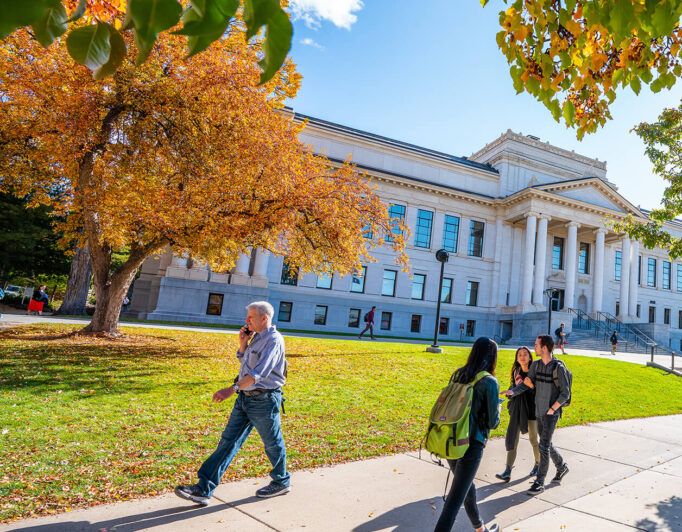A Beginner’s Guide to Finding and Earning Scholarships
Over my academic career, I have been granted many scholarships. In the beginning, I thought it was just luck, but after working here and peering into the decision-making process of other students, I realized that my luck might be more calculated than I thought. So, here is a quick and straightforward guide into some of the things I personally keep in mind when making academic decisions and hunting for scholarships.
Start Local

There are hundreds of thousands of scholarships nationwide, and yes, you could win a nice national scholarship. However, there are many scholarships throughout the nation, and there are also many students competing for them. At that point, the essays become very impersonal, and it is difficult to get a leg up on your peers because you are all faceless names with Grammarly-checked essays.
When starting your scholarship hunt, it can be better to start with local scholarships. The competition is smaller, and your application may be more meaningful. For example, I might have on my resume that I interned at the Hinkley Institute. That is very well known at the U and would catch someone's attention who knows the significance of it firsthand.
Start Early & Be Intentional

Draft your essays and request your letters of recommendation as early as you can. But even earlier than that, decide on a scholarship or a cause.
For example, let's say I am a geography major. I look at the geography website for different scholarships that I might be interested in, and I see the Merril Ridd Scholarship, which has one of its requirements: “student should have an educational focus in GIS and the environment.”
In this case, I am thinking of things I can do that pertain to environmental justice. So, let’s work with that. You want to frame yourself as someone who wants to use technology to help the environment. Next, you can shape your resume to highlight your skills and experience that align specifically with this scholarship.
To continue building off this example, you could apply to become a Wilkes Scholar. It is a research opportunity that provides a $5,000 stipend. You could start volunteering with Edible Gardens on campus or Tree Utah, a nonprofit that helps plant trees in public spaces. You can start choosing electives that have the SUST attribution. And you might even be able to obtain the sustainability certificate. Even simply showing up to Hinckley forums that focus on sustainability can aid you in the process.
That was a lot of information to throw at you, and a lot of commitment to have. You honestly do not need to do everything, but I do highly recommend doing some type of community service. Classes that are CEL coded are a good place to start. But let's say you decided to do at least 2 of these things. Maybe you volunteered for Edible Gardens and attended a Hinckley forum.
Now you have experience catering to that one scholarship and qualify for many other ones. Plenty of scholarships are given for community service and merit.
Get to Know Your Professors
What is the point of applying for local scholarships if you do not become involved with the people giving you the scholarship?
If a professor of yours has a research agenda that you are interested in, do not be afraid to introduce yourself to them. Meet with your academic advisor regularly; make sure that they know your name.
They will keep you in mind, and you will be surprised how many opportunities a faculty member can pass your way. Also, just having some type of relationship can lead to stronger letters of recommendation.
Use the Resources Available to You

If you are struggling to find ways to get involved or make decisions between one opportunity or another, we have people to support you. Student Success Coaches are the perfect people to discuss your goals with and hold you accountable too. Career Success Coaches are here to help you make decisions and search for opportunities that best suit you. Use what you have available to you.
Additionally, when scholarship season comes around (end of Fall semester to beginning of Spring semester), we have a writing center that can help you write the best scholarship essays you can—all for free. Take advantage of these resources; not everyone has them.
Do not forget to go to scholarship workshops too. Those are usually taught by people who have firsthand experience with the scholarship rewarding/decision-making process in your department.
Save Everything

Document and save all drafts throughout your writing process. Even your brainstorming documents could come in handy in the future. I had years when I could not produce a satisfactory answer to a common prompt, so I re-used ideas from an earlier essay. Guess what? Those years I won something. Also, save essays that you write in your classes. Some scholarships and internships will ask you for a writing sample.
As a Final Thought
This guide to scholarships is only to help you get your foot in the door. Once you start taking these steps to intentionally plan your academic career, it becomes a lot easier to get scholarships, internships, and create a more cohesive elevator pitch for yourself. The Financial Wellness Center is here to help hold you accountable through your journey, and especially when budgeting for those funds. That said, it is up to you to look for these resources and start. Book an appointment with us to help you get started!
Good luck and happy scholarship searching!
